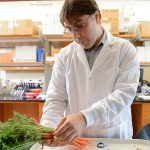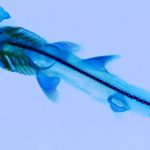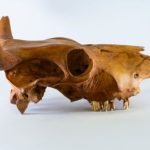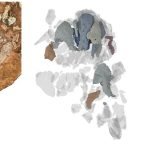Dogs choose yummy treats over fun toys, shows study
Ever wondered what your dog loves more – that tasty treat you offer or their favorite toy?
Researchers from the University of Florida set out...
Scientists discover hidden dangers in booming ice ivory trade
Ice, mammoths, and elephants may seem like an unusual trio, yet they are linked in a way that is presently unfolding a significant threat...
How your dog’s size influences their aging and health
We've all noticed that smaller dog breeds, like Chihuahuas or Dachshunds, tend to have longer lifespans than their larger buddies like Great Danes or...
Scientists find way to grow tomatoes in building waste
Once upon a time, a group of researchers from the University of Portsmouth uncovered a magical recipe for turning construction rubbish into a lush...
Why are carrots orange? New study reveals the color secret
Picture a lavish, vibrant carrot salad on your plate.
Have you ever stopped and wondered why carrots, a popular veggie, are predominantly orange and not,...
How hammerhead sharks grow their hammers
In the vast expanse of our oceans, resides one of the most enchanting and oddly-shaped creatures: the hammerhead shark.
Their distinct 'hammer' shaped head, known...
Why killer whales play rough with porpoises, but don’t eat them
Killer whales, also known as orcas, are fascinating creatures known for their intelligence and complex social behaviors.
But, there’s a strange mystery about them that...
Why there were so many mosquitoes this year
If you think there were more mosquitoes this year than usual, you're not wrong.
Spring and summer in 2023 saw record temperatures across the globe,...
Ancient DNA reveals an early African origin of cattle in the Americas
Cattle may seem like uniquely American animals, steeped in the lore of cowboys, cattle drives and sprawling ranches.
In a study funded in part by...
Ancient fish fossil unlocks 100-million-year-old secrets of skull evolution
Scientists have discovered something amazing about a really, really old fish fossil.
This fossil helps us understand how the skulls of animals with backbones, like...










